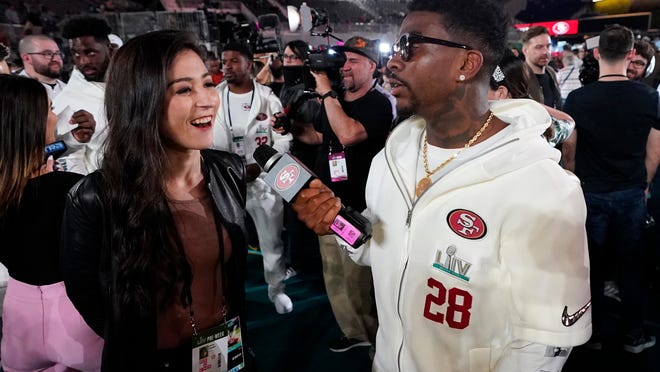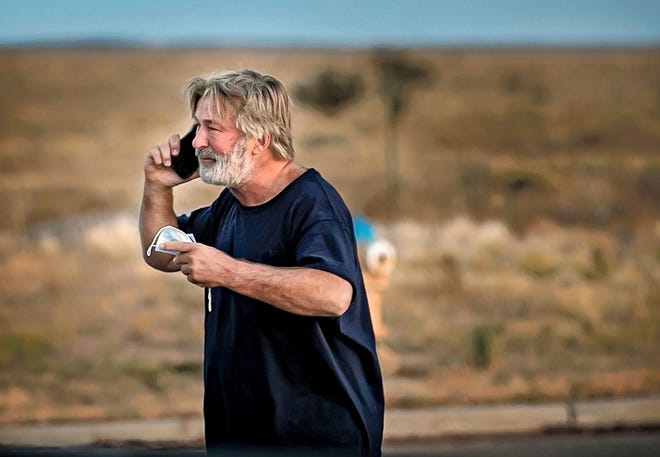
It's tiring. The ignorance, the stupidity, the racism...it's exhausting. It won't die. It doesn't rest. It comes at you from all corners. The people who traffic in it think they're funny or clever. Sometimes the racism is blatant. Sometimes they use so many dog whistles you think it's Westminster. All of this was in play on Wednesday when a Boston sports talk buffoon hurled a racist remark at one of the best of us, of all of us, in ESPN's Mina Kimes.
During a segment on WEEI's "The Greg Hill Show" co-hosts Greg Hill, Jermaine Wiggins and Courtney Cox were discussing their "top five nips" as the Boston City Council prepares to discuss a possible ban on "nips." These are small liquor bottles.
The group were giving examples when producer Chris Curtis interjected: "I'd probably go Mina Kimes."
The slur, which was Curtis' attempt at humor, is guttural, like bottom of the barrel low, and used against people of Japanese descent. Think about how deep you have to go into your dark soul to pull that one out. Kimes is of Korean descent so Hill couldn't even get his racism right.

In a statement to USA TODAY Sports, ESPN called the comments "uncalled for and extremely offensive." The network added that "there is no place for these type of hateful comments."
Audacy, WEEI’s parent company, told the Boston Globe that Curtis was trying to reference actress Mila Kunis, instead of Kimes. Kimes later changed her Twitter profile photo to Kunis.
So Curtis was trying to replace a racism with a sexism? That's his defense? Really?
If you're familiar with Boston's history, this incident isn't a surprise.
It's true that Boston isn't the hardcore racist town it once was. It's changed for the better. In 2021, Michelle Wu became the first woman, first person of color, and first Asian American to be elected mayor of the city, winning over 60 percent of the vote.
The amount of racism in Boston isn't at the same level as when I lived there decades ago. Overall, it's a better place for athletes and people of color.
What the WEEI incident with Kimes shows, however, is that parts of Boston still won't let that racist past die. There are still people who embrace it with their whole chests. They refuse to die. Sticking around like the fungus from The Last of Us.
Racism happens in other cities, of course. Hell, across the country. Donald Trump gave white people the permission structure to be openly racist, and plenty obliged him. It was Trump who gave a racist nickname for the coronavirus during the pandemic, serving as the leading edge for a rise in anti-Asian hate.
More:Asian Americans say fears linger in Atlanta despite progress two years after shootings
What we saw with Kimes was, I believe, partly the Trump Effect, but also the Boston one. You'd be making a mistake if you thought this was just a WEEI thing. This story is also, in part, a Boston one. Despite the progress made, there's an audience that likes hearing this type of ugliness and the hosts know it. Blaming just WEEI is like blaming just Tucker Carlson for his white nationalism. The reason Carlson says the disgraceful things he does is because millions of people like it.
Boston is better but the stain of racism is long and hard to ignore. In July of 2022, LeBron James said he hates Boston because Celtics fans are "racist as (expletive)." Marcus Smart detailed how a fan called him a racial slur.
“I’ve heard a couple of them,” Smart said in 2021, according to Jay King of The Athletic. “It’s kind of sad and sickening because even though it’s an opposing team, we have guys on your home team that you’re saying these racial slurs and you’re expecting us to go out there and play for you.”
More:Boston radio producer under fire for 'extremely offensive' comment about Mina Kimes
Baseball players say they have experienced countless racist incidents at Fenway Park.
This isn't just about one racist clown on a talk show. This is also about Boston's past clinging hard to its present like poop on a shoe.
How Kimes was spoken about should have never happened to anyone, but it is especially offensive because in the sports media world (especially the NFL one) – and I'm not exaggerating – she is cherished. Kimes has been able to do something that is exceedingly rare in our business. She's reached the upper echelon of it and is respected by everyone. I mean that. Everyone.
She's one of the few people I've met who covers both the data part of the league and the human part of it. She doesn't talk about players like they're androids which so many who cover the NFL now do. Kimes doesn't just mock draft her way across the league, either.
In the end, Kimes has something the bigot or misogynist or both (take your pick) at WEEI doesn't.
And that's respect. Lots and lots of respect.








